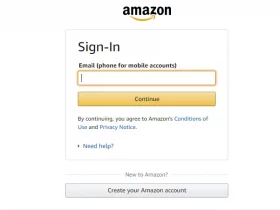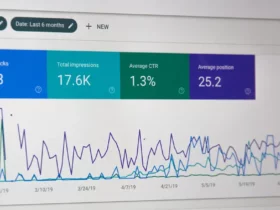You might have a well-thought-out link building strategy for your college blog, and somehow, you still find out that it does not get you the results that you’d hoped for.
If this is the case, you may be lacking the proper tactics to implement your plan.
Not to worry, link building can be made accessible with the right steps.
So, without any further ado, let us take a dive into the topic and show you how you can improve your college blog.
Outreach
Yes, you have heard this before. This is the first step, where you reach out to other brands in your niche or have the same target demographic and introduce them to your blog.
However, most student writers forget that you do not always need to create content. Instead, you only need something that’s worthy of a link.
But when you start networking for this purpose, you need to make sure that the other site also has your target keyword in their content or has linked to similar blogs. For instance, since you are likely catering primarily to students.
So professional coursework writing service like EssayPro can help you connect to readers of the same profile.
You can find a content explorer tool online for free, which will help you understand what kind of links are added to these websites.
Explore Guest Posting Opportunities
Guest posting is another popular strategy used by bloggers of all kinds to include more links.
However, many make the mistake of reaching out to the only websites that advertise room for guest posts.
Instead, you might have better luck with brands that do not have a dedicated section. Nevertheless, you can reach out to them with your pitch through email. Besides, you could reach out to Getmentioned agency since they provide guest post services in your target niche.
Some of the most popular brands that access guest posts, such as Afrefs, do not feature that they are looking for content on their website.
Replace Broken Links
Websites with guest blog posts might also be running a few broken links.
At times, even those running the website might not be aware of this. However, this can be of advantage to you.
- Find broken links on a domain using an online ‘Site Explorer’ tool and filtering by ‘404 Not Found’.
- Create content similar to that of the broken source.
- Reach out to the website, asking them to link to your working source rather than the dead one.
All that said, you also need to consider that not every pitch you make like this will be successful.
But if you choose platforms that have a decent flow of traffic, then it is worth putting the effort in.
Find Unlinked Mentions
The chances are that there are hundreds of other blog posts online that have content perfectly suitable for you to link to.
However, these opportunities might not fall into your laps.
You can start by visiting some popular sites that have the same target audience as yours and then scour through the posts to find a suitable one.
You can also reduce the effort by using a site explorer tool and searching by keywords that you want to link to.
With a bit of SEO knowledge, you can figure out which keywords work best for your brand.
After that, it is a matter of reaching out to the site and asking them clearly whether they would agree to link to your page.
You can even offer some linking opportunities on your own website in return.
Content Repurposing
Not all link building tactics need to be based on outreach.
If you run a college blog, then the chances are that you also have social media pages.
And today, most platforms allow you to add links to posts and stories in multiple formats.
So, you can and should leverage these features to bring more attention to your content. You can also repurpose the format to suit different networks.
For instance, you can condense an online essay into an infographic and post it as an image on Instagram or Facebook.
You can also animate it to create a video that would work for Twitter or YouTube.
If possible, you can even build a podcast out of it and link back to your post. These ways allow you to promote your blog across multiple platforms and reach a wider group of audience.
Link Building Through Community Sites
Community sites such as Reddit, Quora, and other messaging boards get a heavy flow of traffic on a regular basis.
To be featured here, you do not even need to reach out. Instead, you can set up a profile yourself.
Since you have a college blog, there are bound to be hundreds of opportunities where you can link to your site while answering someone’s queries.
As long as you are not spamming on these pages, you can establish yourself as a trusted participant in discussions. This will also help you diversify your backlink profile.
Create Shareable Content
Ultimately, you also need to focus on building an array of sharable content that other sites will want to link back to.
These do not always have to be written content itself. Here are some other ideas that will help bring more visitors to your blog:
- Create templates for photo editing/ journals and more
- Create free tools
- Offer free ebooks
- Conduct free webinars
- Keep up with trends
All these can be linked on multiple platforms that can attract new visitors while helping you retain your existing readers.
However, at the end of the day, you need to make sure that your content stays relevant.
This is crucial to make it appealing not only for other brands to link to your site but also for your customers to find you authentic.
After all, if you do not offer quality content, no amount of backlinking can help you sustain a client base and help your blog grow.
With these tactics, you will be able to promote your content more and make it linkable.












